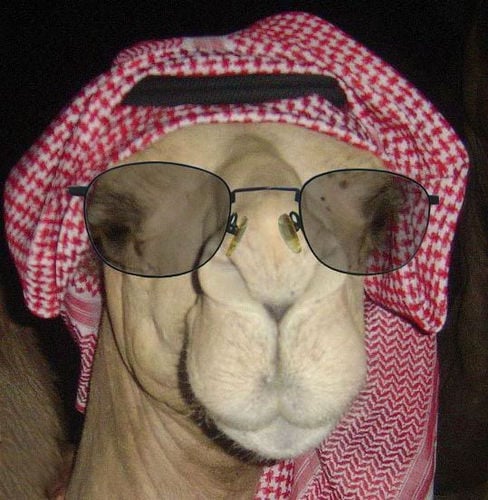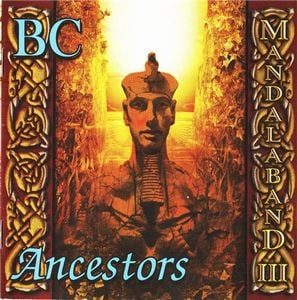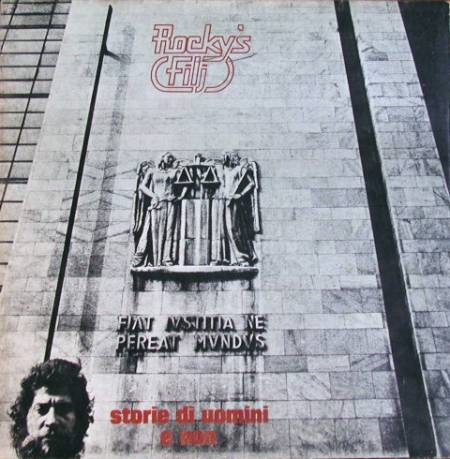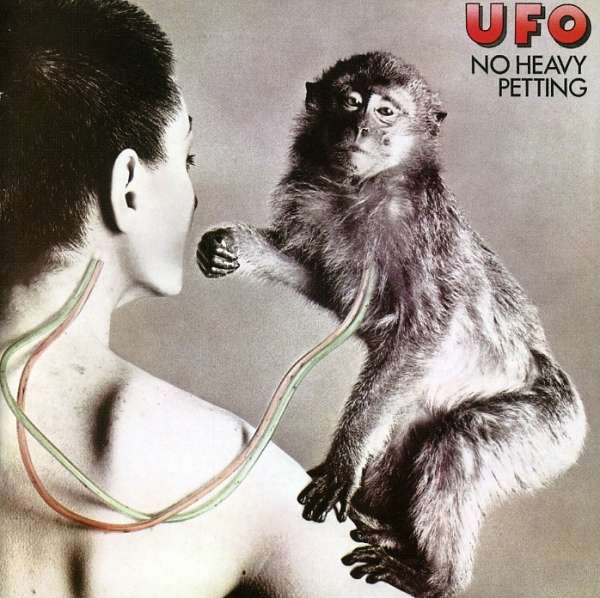Progarchives.com has always (since 2002) relied on banners ads to cover web hosting fees and all.
Please consider supporting us by giving monthly PayPal donations and help keep PA fast-loading and ad-free forever.
/PAlogo_v2.gif) |
|
Post Reply 
|
| Author | |
toroddfuglesteg 
Forum Senior Member 

Retired Joined: March 04 2008 Location: Retirement Home Status: Offline Points: 3658 |
 Topic: Mandalaband Topic: MandalabandPosted: November 18 2010 at 15:07 |
|
Mandalaband is a British band and the brainchild of David Rohl. It has so far released three studio albums. The full story is available here so I am not running through that again.� Mandalaband has just released Resurrection, a double album containing their first two albums + bonus tracks. I got in touch with David Rohl for the Mandalaband story so far and some exciting news. -----------------------------------------------------------------------
What
is your background and what are the origins to Mandalaband?
I was born in Manchester, England, in 1950 and formed my first band
in 1966 called The Sign of Life. We played the American bases
in Germany before evolving into a new line-up called Ankh (the
Egyptian word for the Sign of Life). My informative years were
influenced by the 60s musical revolution, spearheaded by The Beatles,
whom I was privileged to meet at Abbey Road Studios during the
recording of the Yellow Submarine album. Ankh was signed by
Phonogram, but the album we started to record was never finished. I
then became a recording engineer and recruited new musicians to form
Mandalaband in 1974.
You
also toured with Mandalaband. Please tell us more about this.
When Mandalaband was signed by Chrysalis in 1975, the record company
immediately put us on the road as the support for the Robin Trower
band, touring all over the UK to 2,000 fans a night. Soon after the
tour finished, the band was scheduled to go into the studio to record
its first album. Band members at that time were myself (piano and
Moog synth), Vic Emerson (Claviolines, Hammond organ and Fender
Rhodes), Ashley Mulford (guitars), John Stimpson (bass), Tony
Cresswell (drums) and Dave Durant (lead vocals).  Please
tell us more about this album, simply called "Mandalaband".
The theme of the album was the occupation of Tibet by the Chinese
army in the 1950's. I wrote a 20-minute piece called "Om Mani
Padme Hum" which took up the entire first side of the LP. We had
played this opus during the tour, but now we were able to add a full
choir (the London Chorale) to give it a real Symphonic Rock flavour.
The other side of the LP had four tracks on it, of which I wrote two
("Song for a King" and "Roof of the World"), whilst the
others ("Determination" and "Looking In") were written by
bass player John Stimpson. It is not exaggerating to say that it was
a rather unusual album for its day and had a pretty grandiose sound
for 1970s prog (and since then for that matter). In fact, I have just
spent the last few months having the multi-tracks digitized at Abbey
Road so that I could remix the entire album. I did the same with the
second Mandalaband album �The Eye of Wendor� and the full set of
remixes (with six bonus tracks) has just been released, in a 2CD
digipak, under the title �Resurrection�. A fuller description of
this new project can be found at the Mandalaband web site.
 The
upheavals during and after the recording of the first Mandalaband
album are pretty well described in the biography at your PA profile,
so let's bypass this. Please tell us more about the second album "The
Eye of Wendor: Prophecies" from 1978.
After I left the original band at the beginning of the recording
sessions (for reasons, as you say, that are fairly well known), I
first became Chief Engineer at Indigo Sound in Manchester and then
moved on to the famous Strawberry Studios in Stockport (home of
10CC). It was there that I recruited many of my friends, fellow
musicians and singers to begin recording a new Mandalaband album.
Chrysalis had realized that Mandalaband without my participation was
not the band they had so enthusiastically signed back in 1974. The
rest of the original band was let go by Chrysalis, going on to sign
for RCA under the name Sad Cafe. Chris Wright, the boss of
Chrysalis, asked me to continue with the Mandalaband contract on my
own, but with new musicians of my choice acting as session players.
And so that is how I came to record and produce The Eye of Wendor at
Strawberry, using more than thirty musician colleagues, including
Justin Hayward (The Moody Blues), all of 10CC, all of Barclay James
Harvest, Maddy Prior (Steeleye Span), Paul Young (Sad Cafe) and Noel
Redding (The Jimmy Hendrix Experience), all of whom contributed their
parts for free and out of the kindness of their hearts.
There
was a long break before you returned in 2009 with a new album. Why?
In 1979 I moved to the south of England and began working as an
engineer/producer for George Martin�s Air Group and for Red Bus
Studios, producing solo albums for Maddy Prior and Tim Heart, and a
pop band I had put together called Vega. Previously, whilst at
Strawberry Studios, I had also engineer/produced both Octoberon
and Gone to Earth for Barclay James Harvest, so, when I left
Strawberry to move down to London, I continued to work with Woolly
Wolstenholme (from BJH) on his solo project called Maestoso,
returning to Strawberry to record the project's first album as its
producer. But, by the late 1980s, I had become disillusioned with the
way music was going. I could not stand punk or what followed it, so I
quit the industry and went to University College London to study
Ancient History and Egyptology. This launched me on a new career as
archaeologists, explorer, writer and TV presenter, with several
best-selling books and internationally acclaimed TV series throughout
the 1990s.  Please
tell us more about the 2009 album "BC Ancestors".
I tend to get a bit bored and move on after I have done something for
a few years, so when I had written four major books and completed
three TV series, I decided that I wanted to get back into music
again. The scene had gradually changed and, although pop is still a
bit derivative, the prog rock scene was becoming stronger and even,
dare I say it, fashionable! Younger people (as well as the veteran
aficionados) were rediscovering the old 1970s albums, given new life
by their transfer from vinyl to CD. Mandalaband, though long dead,
had actually become a cult band especially in Europe and Japan!
So I thought, why not see if any of the guys from the original
line-ups were interested in resurrecting the band to do another
album? And here we are, two years later, with BC Ancestors
released, the 1970's albums remixed and just out, and a fourth
album AD Sangreal being finished off for release early in
2011.
How
would you describe the musical developments of these four studio
albums?
I would say fairly natural, given the advances in technology over the
last forty years. The first album was fairly raw but with a lot of
feeling (and a real band character); The Eye of Wendor much more
controlled with complex rhythms and counter melodies (more of a rock
orchestra); and now with the new albums a massive leap in quality
and sound depth, with a huge orchestral sound and touches of Celtic
atmosphere mainly contributed by Troy Donockley who is one of the
splendid new recruits to the Mandalaband brotherhood. Another major
new influence is Jose Manuel Medina who works closely with me, here
in Spain where I live, to produce the orchestrations.
 As
you have mentioned, a new compilation album named �Resurrection�
has just been released which is the remixed and re-mastered debut and
the second albums from the 1970s. Please tell us more about how this
new double album came about and, in particular, how you chose the
bonus tracks.
I had been thinking for a while about how unhappy I had been with the
sound quality of the first album (which I had been prevented from
recording and producing by the machinations of Music Industry
politics). So I decided to see if I could persuade EMI (the new
owners of the recordings, having acquired the Chrysalis catalogue) to
let me completely remix both albums for a new edition of the 1970s
Mandalaband recordings. A lot of older albums are re-mastered these
days, but it was very unusual to do a remix using the original
analogue multi-track recordings. Fortunately EMI were keen on the
project and even offered Abbey Road Studios for the digitizing. I
then remixed and sound reinforced the tracks using my Protools studio
in Spain. I then thought of digitizing some of my old stereo tapes,
that hadn�t been heard for thirty years, to see if there was stuff
there that could be used as bonus tracks. I even found a tape of the
first Mandalaband playing an alternative version of �Roof of the
World�, which was much better than the one that actually appeared
on the first album. I also had a couple of multi-tracks from my days
at Indigo Sound with demos of tracks destined for The Eye of Wendor.
All this was digitized to enable me to add six bonus tracks that had
never been heard before � including a track from the audition for
Chrysalis, which got the band signed.  You
are currently working on the new album "AD - Sangreal" which is
scheduled for an early 2011 release. What can we expect from this
album?
This is a true concept album, which tells the story of the Holy Grail
(the Romano-Spanish version of the legend rather than the Arthurian
one). Many of the tracks are anthems, rather than simple songs, with
big sing-along choruses � very memorable melodies and lots of
medieval atmosphere. The rest of the band members think that this
album is stronger than BC it's hard for me to tell because I am
so close to it, having worked on the songs for eighteen months now.
So I will leave the listeners and fans to judge whether it really is
the best Mandalaband album to date I suppose these things are
subjective and all a matter of taste.  Besides
your work with Mandalaband and your productions for other music
artists, you are also recognized as an well-known historian with
several documentaries for the Discovery Channel among others. Please
tell us more about this work.
As I said, I had several best-selling books translated into eleven
different languages, plus some major TV series. This all came about
because I came up with a theory (resulting from my research at
university and at the Institute of Archaeology, London) which
proposed that a major error had been made by earlier historians who
had artificially added three centuries into the timeline of ancient
history. This completely messed up links between Egypt, Mesopotamia,
Greece and the Old Testament stories of the Israelites, resulting in
the Exodus, Conquest of the Promised Land, King David and King
Solomon being denied their place in history simply because no
archeology for them had been found. By adjusting the timeline,
suddenly everything fitted together so much better, and all these
biblical stories magically started to appear out of the ground. Of
course, this caused an absolute uproar and I was accused of all sorts
of things but gradually, over the years, the New Chronology
theory is gaining more and more support as the initial shock and
resistance from academia starts to cool and new evidence comes to
light. My first book was called A Test of Time and we will see
if my chronology stands the test of time over the coming decades. Besides
the release of the new album in 2011, are there any other plans for
Mandalaband in the coming year?
I would love to get the band on the road but the logistics of
this would be very complicated and expensive, as we are talking about
at least eight top musicians - all of whom are extremely busy with
their own bands and projects � finding common time to rehearse all
the material and then tour for several months at a time. We will just
have to see if such an ambitious venture is possible. If so it would
be quite something, I promise! Thank you to David Rohl for this interview Edited by toroddfuglesteg - November 19 2010 at 14:54 |
|
 |
|
Todd 
Special Collaborator 

RPI / Heavy Prog Team Joined: December 19 2007 Location: California Status: Offline Points: 3472 |
 Posted: November 19 2010 at 12:44 Posted: November 19 2010 at 12:44 |
|
What an informative interview! Thanks again, Torodd. And thank you to David Rohl!
I was able to get a copy of the first two albums on eBay, but this new version sounds wonderful. I'll be sure to grab that one. "BC - Ancestors" is good as well. And that is great news about the forthcoming album!
|
|
 |
|
Andrea Cortese 
Special Collaborator 

Honorary Collaborator Joined: September 05 2005 Status: Offline Points: 4411 |
 Posted: November 21 2010 at 02:54 Posted: November 21 2010 at 02:54 |
|
I like what David Rohl did as a sound engineerer (BJH's Octoberon, and Maestoso for instance) and as the leader of his own band. I liked so much Mandalaband in The Eye of Wendor.
It is always great to know that artists like him come back producing new material.
Torodd, could please also post the pic of David with the master himself??? eh eheheh I speak of his friend Woolly Wolstenholme (another good suggestion for the next interviews...). Edited by Andrea Cortese - November 21 2010 at 02:55 |
|
 |
|
WalterDigsTunes 
Forum Senior Member 
Joined: September 11 2007 Location: SanDiegoTijuana Status: Offline Points: 4373 |
 Posted: November 21 2010 at 02:58 Posted: November 21 2010 at 02:58 |
|
Good times. I remember the first time I looked at the performers on Eye of Wendor. Wowie zowie! Almost as mindblowing as the first time I spun that CD.
Also, Noel Redding played with the Jimi Hendrix Experience. |
|
 |
|
Post Reply 
|
|
| Forum Jump | Forum Permissions  You cannot post new topics in this forum You cannot reply to topics in this forum You cannot delete your posts in this forum You cannot edit your posts in this forum You cannot create polls in this forum You cannot vote in polls in this forum |